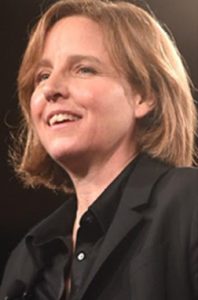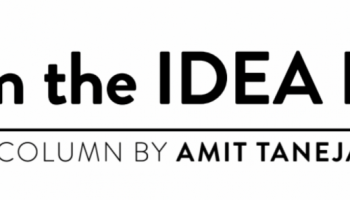
If anyone is “full of life and pep and vigor” — as the Chautauqua Boys’ and Girls’ Club song goes — in pursuit of learning, achieving and giving back, it is Girls’ Club alum, Chautauqua Literary and Scientific Circle grad, and Buffalo, New York, native Megan J. Smith.
An award-winning entrepreneur, intrapreneur, ideapreneur and engineer, Smith — co-founder and CEO of shift7 — is best known to some for serving in the White House from 2014 to 2017 as an assistant to and the chief technology officer for President Barack Obama.
To others, she’s a stand-out for her accomplishments at Google from 2003 to 2014, where she rose to vice president of both Google and Google[x], and general manager of Google.org, the corporation’s philanthropic organization. For nine years, Smith spearheaded the development of businesses and partnerships, including the tech start-ups that became Google Earth and Google Maps. She also co-created Women Techmakers and Google’s community solutions think tank SolveForX.
And to still others, Smith is a tech guru who has enthusiastically and conscientiously applied her broad-based knowledge, know-how, and humanitarian outlook at the interface of technology and public service to genuinely improve lives, livelihoods and communities. She has done so in part by serving as CEO of PlanetOut, a life member of the board of the MIT Corporation — having earned her bachelor and master’s degrees in mechanical engineering at MIT — and a member of the board of directors of the Vital Voices Global Partnership.
At 3:30 p.m. EDT on Friday, July 10, on the CHQ Assembly Video Platform, Smith will kick off the Chautauqua Women’s Club’s 2020 Contemporary Issues Forum. Her virtual presentation is titled, “20for2020: The (Inclusive) Future of Innovation, Work, AI/Data, Living Planet, and Democracy #CollectiveGenius.” This presentation was originally set to debut at 3:30 p.m. EDT Tuesday, July 7, but was postponed due to technical difficulties.
“As we think about diversity, we have to think about intersectionality,” Smith said. “When we think of intersectionality, so many people are left out, especially younger and older women, and younger and older women of color. Anything that people can do to better see through history (is important).”
Smith contends that everyone should be included in the design and creation of a shared future.
“We’re not used to listening to our eldest women,” she said. “We don’t want to silence men, we just want balance. … There are two parts to balance. It’s (the) humanity included, but it’s also the topics included. So that’s why we call it ‘solution-making through inclusion.’”
#20for2020 is a collaborative initiative to introduce people to some of the “herstory” of our collective past. Smith said that this initiative was created in partnership with artist and comedian Amy Poehler and television producer Meredith Walker, co-founders of Amy Poehler’s Smart Girls.
“We looked at tons of women and we selected 20 extraordinary accomplishments by women,” Smith said. … Eighty percent are women of color.”
Solution-making through inclusion is “what shift7 is always talking about,” Smith said. “Just like a venture capitalist, figure out who’s already fixing the thing — like Malala (Yousafzai, the Pakistani activist for female education).”
At shift7, Smith and her colleagues are propelling social innovation globally and broadening access to technology by connecting and “cross-pollinating” organizations, companies and policymakers with non-traditional and diverse tech talent. In part by identifying and collaborating deeply with people who are developing remarkable solutions to the world’s most complicated challenges, they are accelerating important and urgent changes within and well beyond the United States.
“Using our collective genius, … scouting and scaling for what’s already working or promising, … building communities of practice, and using our networks to do that” are priorities for Smith and shift7.
According to Smith, “so many people already have working solutions, or promising things, so that if we use our network to more rapidly share, and iterate and collaborate, we can really make strides on some of the hardest challenges we face. If we de-silo — policymakers working with innovators, working with nonprofits, getting the nonprofits into companies, … we can do amazing things mixing it up.”
Pointing in part to the CLSC and its wide outreach past and present, Smith said that “we’ve always had networks. … We can use (the internet), as we’ve seen in COVID, to really bring people together — families, kids learning online, collaboration in organizations. Or we can use it in a destructive way. … It can be good. Or bad — like fake news, or to make Americans fight with each other.”
What excites Smith about the internet — if we seek to use it well — is the practice of kindness, including employing it to organize communities.

